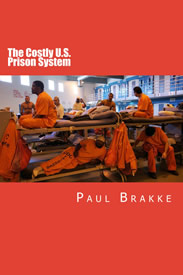Since I began creating card games about everyday life experiences, such as scams in Scamalot, and life in prison in Life Behind Bars and Love in Prison for ALB Games, I began thinking about how life is like a card game.
We are dealt different hands to begin with, but we need to play them as well as we can to improve our lot in life, though if we don’t play well, other players can take advantage of us and cause us to lose.
I began thinking about all the parallels and different strategies for playing a good game to become a winner in the game of life. Then, to get a better hand at thinking about the life and game comparisons and about the strategies for better play, I asked AI for additional ideas.
The Many Parallels Between Life and a Game
Here are some ways to think about life like a card game and how to play a better game or improve your hand in life.
Starting Hands Vary: In a game, players are dealt different hands at the start of a game. Some hands are strong, some are weak, and sometimes you can’t be sure how strong or weak a hand is, since you don’t know the hands that other players have. Likewise, in life, people are born into different circumstances — some with privilege, wealth, and plenty of opportunities, while others face challenges like poverty or discrimination. Your “hand” represents your starting resources, talents, and environment, but if you play well, you can surpass what you started with; if you play badly, you can lose the advantages you began with in life.
Thus, success often depends more on how you play your hand than the cards you were first dealt. Skills, attitude, and decisions are key in getting ahead in life.
Your Strategy Matters: In a game, your strategy contributes a great deal to whether you win or lose, since winning often depends on how you play your cards, not just the strength of your hand. Players with weak hands can outmaneuver others by bluffing, timing, or understanding the rules better. Accordingly, players must decide whether to play aggressively, bluff, or fold based on the cards and their assessment of the situation Likewise, in life, achieving success often depends on your resourcefulness, decision-making, and perseverance. Even if you start with limited opportunities, you can make the best of them through strategic choices to help you progress towards your goal. Just think of the many successful leaders in business and stars in the cinema who started with poverty and found a way to “play their cards well” to achieve a high position in their chosen field. Thus, in life, making informed decisions, including whether to take risks or play it safe, shapes the outcome you experience.
Luck Plays a Role: In a card game, the draw of a new card can completely change the game, introducing an element of unpredictability. As a result, even with the best strategy, the next card drawn or an opponent’s move can change the game. Likewise, in life, good or bad unexpected events can drastically affect your path. For example, you might by chance meet the right mentor, land a job unexpectedly, or avoid unforeseen hardships, such as escaping the ravages of a hurricane by being in a safe space, while others die by being in the wrong place at the wrong time. Thus, luck plays a role in what happens in your life, but being prepared can help you capitalize on opportunities when they arise or protect yourself to reduce any damages or disadvantages you face when difficulties or challenges occur.
You Have Opportunities to Improve Your Hand or Fall Behind: Many games allow for trading, drawing new cards, or discarding weaker ones, giving you a chance to improve your hand. Players can often have a chance to improve their fortunes during a game based on the cards they draw or discard. In much the same way, you can improve your life by obtaining more education, networking, and personal growth, though you can fall behind through bad choices, such as drinking too much, taking drugs, or associating with people who hold you back. Accordingly, every new skill you learn or the connections you make can potentially improve your hand, while you can blow your opportunities if you play your options in life badly. In short, life provides opportunities for growth and change, whether through education, networking, or personal development, though you can fail to take advantage of these opportunities or make negative chances to hold you back.
Your Mindset Influences Outcomes: In a game, playing with confidence, being adaptable to changing circumstances, and staying focused can help you get ahead even if you have a weak hand. Also, in many games, a skilled player can bluff, influencing how others perceive their hand. Through such options, the best players adjust their strategy as the game progresses and the landscape changes. By contrast, having overconfidence or becoming distracted can cause you to make missteps even with a strong hand. Likewise, in life, having confidence and presenting yourself as someone who is successful can shape how others perceive your capabilities, opening doors to new opportunities. Then, too, if you have a growth mindset, resilience, flexibility, and emotional intelligence, those qualities can help you overcome any adversity and challenges and help you maximize your opportunities.
Playing a Better Game with Your Hand
Here are some ways to improve your game play and your life.
Assess Your Cards Honestly: Understand your strengths, weaknesses, and current resources. Self-awareness is the first step to crafting an effective strategy.
Learn the Rules: In both card games and life, knowing the system allows you to navigate challenges effectively. Just as it is important to know the rules of the game, understanding societal, financial, and professional systems helps you make the most of your opportunities. So educate yourself about the environments, industries, or systems that affect your ability to achieve your goals.
Adapt to the Game: Be flexible and willing to change tactics. If one strategy isn’t working, pivot to try another strategy. Life rewards those who can adapt to new realities.
Develop Your Strategy: Set a plan that considers short-term actions and long-term goals, balancing risk and reward. To this end, be patient and pay attention to timing, since knowing when to act and when to wait is often the difference between success and failure.
Be Open to New Opportunities: Like drawing a new card, saying “yes” to opportunities can transform your path. Stay curious and be willing to try new things. Stay alert to opportunities for improvement and be open to changing your direction when necessary.
Control What You Can: Focus on areas you can influence, such as your health, attitude, and work ethic.
Play to Your Strengths: Maximize the advantages you have, whether these are a skill, talent, or resource. A focused approach often yields better results than trying to do everything. In this way, use your best “cards” (skills, relationships, and resources) strategically to achieve your goals.
Seek Alliances and Build Your Network: In card games, partnerships can be pivotal to be successful and win the game. Similarly, in life, building a strong network of supportive relationships can open doors and create opportunities. Accordingly, surround yourself with people who inspire, support, and challenge you to grow. Engage in networking, too, since this can provide access to resources and opportunities you wouldn’t have on your own. So build connections that can provide support and opportunities.
Learn from Others and Seek Mentors and Coaches: Observe successful people and adapt their strategies to play an even better game in your life. For example, learn from others who have successfully navigated similar challenges. A good mentor can guide you toward better decisions and new opportunities.
Invest in Education and Skills: Learning new skills or gaining qualifications can significantly enhance your opportunities. Education is often one of the most effective “card upgrades.” Thus, invest in skills that increase your value and open doors
Take Calculated Risks: Sometimes, improving your hand means stepping out of your comfort zone. Apply for a challenging job, move to a new city, or start a project you’re passionate about. In this way, by doing things that may not be comfortable at first, you can grow and discover new possibilities.
Manage Your Resources Wisely: Time, money, and energy are your most important assets. Prioritize what matters and avoid wasting resources on unproductive pursuits.
Stay Resilient and Patient: Some rounds of life are tougher than others. Keep playing your cards as best you can, even when the odds feel stacked against you. A single breakthrough can shift the entire game up to a new level of opportunities and benefits.
Work on Personal Growth: Develop emotional intelligence, resilience, and discipline. These traits help you adapt to challenges and thrive in various situations.
In sum, thinking about life as a card game is an empowering analogy, since it highlights how we can’t control the hand we’re dealt, but we can control how we play it. Success comes from understanding the game, maximizing what you have, and continuously working to improve your position. The best players aren’t just lucky — they’re prepared, adaptable, and strategic. So may you play the game of life well.
For more information on books, films, and games, and to set up interviews, email or call:
Karen Andrews
Executive Assistant
Changemakers Podcasts
Changemakers Publishing and Writing
San Ramon, CA 94583
(925) 804–6333




